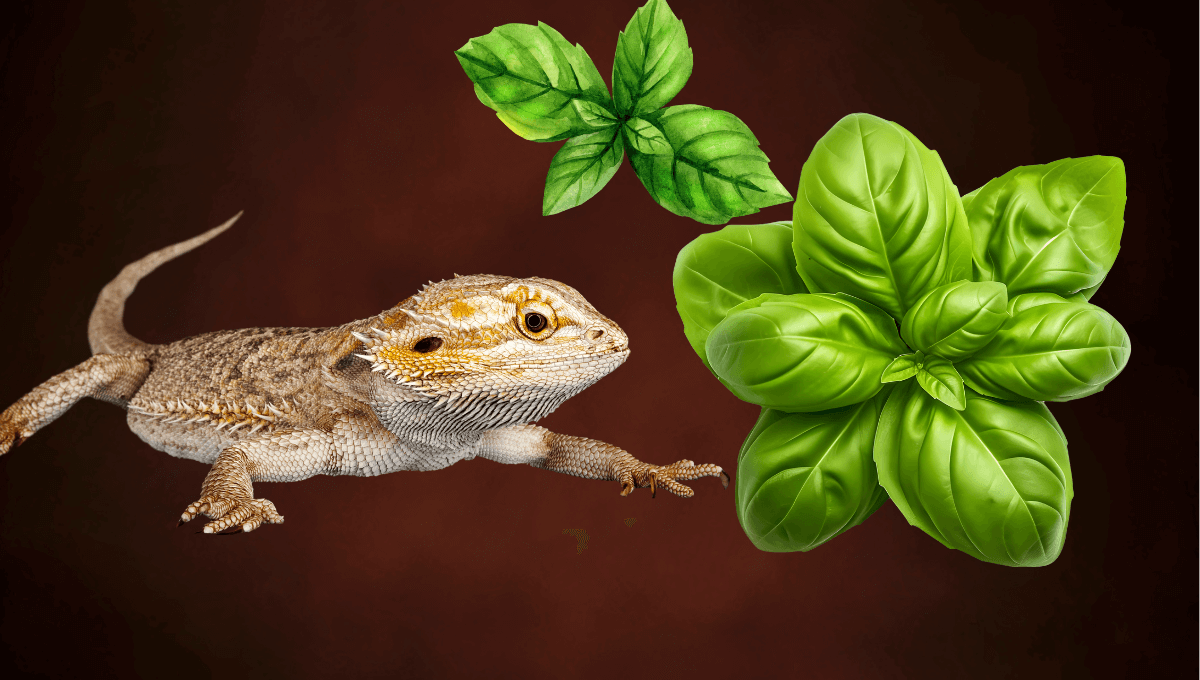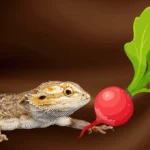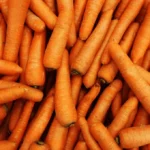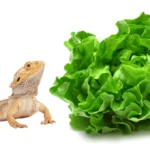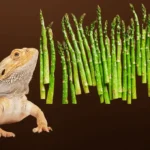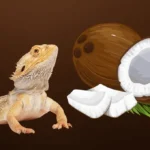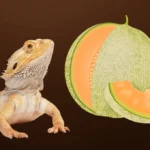Bearded dragons are omnivorous reptiles that thrive on a varied diet, which includes a mix of insects, vegetables, fruits, and greens. As pet owners look to diversify their bearded dragon’s diet, herbs like basil often come up as potential additions.
While basil is a common herb in human diets, it’s important to assess whether it is suitable and safe for bearded dragons. This article explores the nutritional benefits, risks, and guidelines for feeding basil to bearded dragons.
Nutritional Profile of Basil
Basil is a fragrant herb that offers various nutritional benefits for humans. Understanding its nutritional profile can help determine its suitability for bearded dragons:
Vitamins in Basil
Basil contains several vitamins that could potentially benefit bearded dragons:
- Vitamin A: Crucial for vision, immune function, and skin health. Basil contains a moderate amount of vitamin A, which can support overall health.
- Vitamin C: Acts as an antioxidant, supports immune health, and promotes collagen production. Basil provides a good amount of vitamin C, which can be beneficial for your pet’s immune system.
- Vitamin K: Important for blood clotting and bone health. Basil contains vitamin K, though it should not be the primary source.
Minerals in Basil
Basil also provides various essential minerals:
- Calcium: Vital for bone health and muscle function. Basil contains a moderate amount of calcium, though it should be supplemented with other calcium-rich foods.
- Iron: Supports oxygen transport in the blood and overall energy levels. Basil provides iron, which contributes to overall health.
- Magnesium: Important for muscle function and bone health. Basil contains magnesium, which helps maintain overall health.
Fiber Content
Basil leaves contain fiber, which aids in digestion and helps prevent constipation. The fiber in basil can support regular bowel movements and overall digestive health.
Water Content
Basil has a high water content, which can contribute to hydration. However, it should not replace other hydrating foods or fresh water in your bearded dragon’s diet.
Benefits of Feeding Basil to Bearded Dragons
Including basil in a bearded dragon’s diet can offer several benefits:
1. Nutritional Variety
Basil can add variety to a bearded dragon’s diet, helping to prevent nutritional deficiencies. Offering a range of different foods keeps the diet interesting and ensures that all nutritional needs are met.
2. Digestive Health
The fiber content in basil supports digestive health by promoting regular bowel movements and preventing constipation. This can contribute to overall well-being.
3. Immune Support
Basil contains vitamins A and C, which support immune health. While not a primary source of these vitamins, basil can contribute to a balanced diet and overall health.
Risks and Considerations When Feeding Basil
While basil can be a nutritious addition, there are several risks and considerations to keep in mind:
1. Essential Oils
Basil contains essential oils that can be potent and potentially irritating to a bearded dragon’s digestive system. These oils can cause gastrointestinal upset or discomfort if consumed in large amounts.
2. Risk of Overconsumption
Feeding basil in excessive quantities can lead to an imbalanced diet. Basil should be offered as an occasional treat rather than a regular part of the diet. Too much basil could potentially upset the nutritional balance.
3. Allergic Reactions
Though rare, some bearded dragons may have sensitivities or allergies to certain herbs. Monitor your bearded dragon for any signs of allergic reactions, such as changes in behavior or digestive issues, after introducing basil.
4. Pesticides and Contaminants
If basil is not organically grown, it may contain pesticides or other chemicals. Ensure that any basil you offer is thoroughly washed to remove potential contaminants. Organic basil is a safer option.
How to Safely Feed Basil to Bearded Dragons
To safely include basil in your bearded dragon’s diet, follow these guidelines:
1. Offer in Moderation
Feed basil as an occasional treat rather than a regular part of their diet. A small amount, such as a few fresh leaves, is sufficient. Overfeeding can lead to nutritional imbalances.
2. Prepare Properly
Wash basil thoroughly to remove any pesticides or contaminants. Ensure that the leaves are fresh and free from harmful chemicals before offering them to your bearded dragon.
3. Balance with Other Foods
Basil should be part of a balanced diet that includes a variety of other foods, such as insects, vegetables, and greens. This helps ensure that your bearded dragon receives all necessary nutrients.
4. Monitor for Adverse Reactions
Observe your bearded dragon after introducing basil into their diet. Watch for any signs of digestive discomfort, changes in behavior, or allergic reactions. If any issues are noticed, discontinue feeding basil.
Alternative Greens and Herbs for Bearded Dragons
If you’re looking for other greens and herbs to include in your bearded dragon’s diet, consider these options:
| Green/Herb | Nutritional Benefits | Feeding Frequency |
|---|---|---|
| Dandelion Greens | High in calcium and antioxidants | Daily |
| Collard Greens | Rich in calcium and vitamins A and C | Daily |
| Parsley | Provides vitamins A, C, and K | 2-3 times a week |
| Basil | Provides vitamins and antioxidants | 2-3 times a week |
| Cilantro | High in vitamins and minerals | 2-3 times a week |
These alternatives offer various nutritional benefits and can be included as part of a well-rounded diet for bearded dragons.
Summary of Basil’s Nutritional Value
| Nutrient | Amount in Basil | Benefit |
|---|---|---|
| Vitamin A | Moderate | Supports vision and immune function |
| Vitamin C | Good amount | Acts as an antioxidant and supports immune health |
| Calcium | Moderate | Essential for bone health and muscle function |
| Iron | Moderate | Supports oxygen transport in the blood |
| Fiber | Present | Aids in digestion and prevents constipation |
Conclusion
Basil can be a supplementary treat for bearded dragons when fed in moderation. It provides some nutritional benefits and can add variety to their diet. However, due to the presence of essential oils and the risk of overconsumption, it should not replace more nutritionally balanced foods. By choosing fresh basil and following proper feeding guidelines, you can contribute to a diverse and healthy diet for your bearded dragon.
